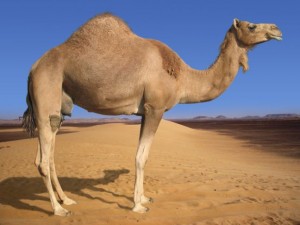People aren’t the only organisms that can’t get going without a daily cuppa. Scientists have engineered a strain of E. coli to thrive on caffeine. To engineer this characteristic in the bacteria, the scientists cloned in genetic material from Psuedomonas putida bacteria. This Psuedomonas species was already known to be able to metabolize caffeine. They also needed to clone in another gene from Janthinobacterium in order for the E. coli to completely metabolize the caffeine. After cloning the genetic material into E. coli, they saw that the bacteria’s growth rate was severely limited by the amount of caffeine in their environment and they could tell how much caffeine was present in a drink by how much of the bacteria grew. The scientists are hoping that the bacteria can be used in decaffeinating waterways near major cities, as the water around population centers usually contains lots of caffeine pollution. If you can get access, check out the paper at ACS Synthetic Biology.
Tag: metabolism (page 1 of 2)
Genomic studies are helping researchers determine what is unique about these dessert dwelling mammals. It turns out it is mostly their metabolism. From Scientific American:
Camels, as ruminants like cattle and sheep, digest food by chewing the cud. But many of the Bactrian genome’s rapidly evolving genes regulate the metabolic pathway, suggesting that what camels do with the nutrients after digestion is a whole different ball game. “It was surprising to me that they had significant difference in the metabolism,” says Kim Worley, a molecular geneticist at Baylor College of Medicine in Houston, Texas. The differences could point to how Bactrians produce and store energy in the desert.
The work shows that camels can withstand massive blood glucose levels owing in part to changes in genes that are linked to type II diabetes in humans. The Bactrians’ rapidly evolving genes include some that regulate insulin signaling pathways, the authors explain. A closer study of how camels respond to insulin may help to unravel how insulin regulation and diabetes work in humans. “I’m very interested in the glucose story,” says Brian Dalrymple, a computational biologist at the Queensland Bioscience Precinct in Brisbane, Australia.
The researchers also identified sections of the genome that could begin to explain why Bactrian camels are much better than humans at tolerating high levels of salt in their bloodstreams. In humans, the gene CYP2J controls hypertension: suppressing it leads to high blood pressure. However, camels have multiple copies of the gene, which could keep their blood pressure low even when they consume a lot of salt, suggest the authors of the latest work.
The study appears in Nature Communications.
Is it because humans walk upright?
The prevailing explanation for why pregnancy doesn’t last that long boils down to something called the “obstetrical dilemma.” Humans walk upright. And the size and shape of our pelvises are constrained by our bipedal way of getting around in the world. If they got much bigger, mothers wouldn’t walk as well. So babies’ brains could only get so big and still fit through the birth canal, the conventional wisdom holds.
Or is it for other reasons:
“Mothers gestate a baby as long as they can metabolically,” Holly Dunsworth, an assistant professor of anthropology at University of Rhode Island, tells Shots.
She and her colleagues concluded that a human baby born at a chimp’s level of development would require the average human birth canal to be about 3 centimeters bigger, an increase of a little more than an inch in diameter.
That’s feasible, the researchers say. “We show that’s within the range of variation now,” Dunsworth says. “Those people with wider birth canals aren’t walking any worse.”
So what is the limiting factor? Apparently, it’s how much energy Mom can divert from her own metabolism to the growth and maintenance of a fetus, the researchers say. We humans are able to crank up our metabolism to about twice its normal level and sustain that turbo mode for quite a while.
From NPR.

